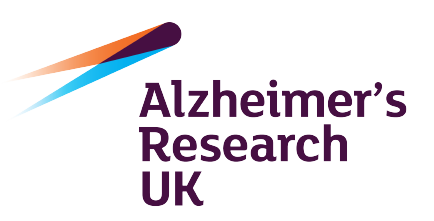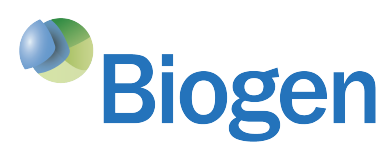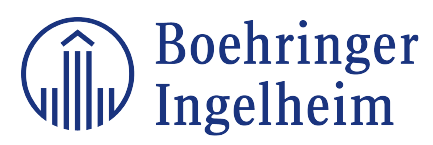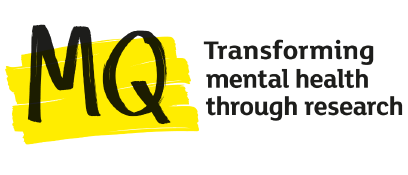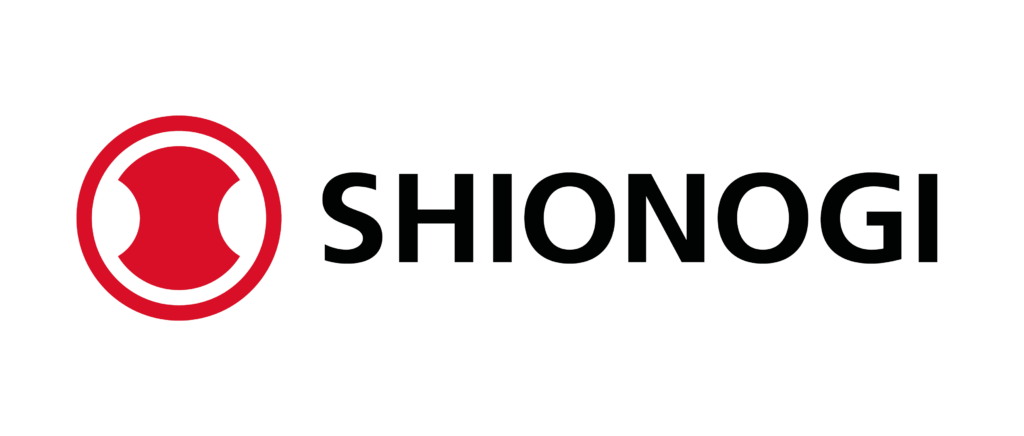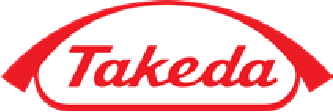Terms & Conditions
These terms and conditions (“Terms and Conditions”) apply to researchers who wish to submit an application for consideration under the Psychiatry Consortium funding scheme and cover the application process, the project review and development process through to when the project is approved for funding.
Projects approved for funding will be subject to a separate specific project collaboration agreement, as described herein.
Applicants will be asked to acknowledge that they have read and understood these Terms and Conditions before making a submission for funding. Submission of an application under these Terms and Conditions does not guarantee that an award of funding will be made, even where such application made is within scope.
Applicants should refer to the Psychiatry Consortium website for information related to specific funding calls, including information on scope, eligibility and project assessment criteria.
1. Introduction
a. Remit and offer of the Psychiatry Consortium
The Psychiatry Consortium (“Psychiatry Consortium”) is a collaboration of charities and pharmaceutical companies to accelerate drug-discovery in psychiatric diseases.
The Psychiatry Consortium focuses on the identification and validation of new drug targets to address the unmet therapeutic needs of people with mental health conditions.
The Psychiatry Consortium seek to support innovative research projects which aim to generate:
- Evidence of target tractability
- Evidence of the target’s relevance to human disease
- Improved tools to support target validation and further drug discovery & development efforts (e.g. tool compounds, biomarkers, assays and models)
The Psychiatry Consortium will work collaboratively with the successful applicant/s to deliver the projects in a timely manner. This will be achieved by providing access to drug-discovery expertise and capabilities, through specialised Contract Research Organisation (CRO) partners, industry know-how, project management resources and project funding.
b. What we will fund
Subject to signature of the project collaboration agreement (please refer to section 5 and 6), the Psychiatry Consortium intend to fund projects which focus on the validation of new molecular targets for mental health conditions including (but not restricted to) psychotic disorders, bipolar disorder, depression, anxiety, OCD, autism spectrum disorders as well as psychiatric symptoms associated with dementia and other cognitive disorders.
Proposals must be supported by robust evidence linking the molecular target to human disease and of the target modulation having a therapeutic effect, which can be further developed or validated. For example, evidence could include;
- Robust genetic association with risk for diseases of interest (e.g. from GWAS or rare variant association)
- Robust human data, generated either clinically or preclinically (e.g. human IPSC cell models), showing the target of interest is expressed in human brain and specifically located in a circuit/pathway known to mediate a phenotype that is relevant to mental health disorders (e.g. the orexin system in which the orexin receptors, OX1 and OX2, mediate arousal and humans with loss of function of OX2 exhibit a pronounced lack of arousal phenotype- narcolepsy)
- Evidence from animal models may be accepted if that evidence suggests modulation of a well-known pathway or circuit in the human condition
Proposals must provide a reasonable therapeutic hypothesis and a suggested plan for further developing or validating the above evidence.
Proposals must clearly outline how target modulation could have a therapeutic effect.
Proposal which seek to enable tools for target validation e.g. through optimisation of existing tool compounds to improve selectivity, potency, bioavailability, will also be considered.
Projects seeking to identify target modulation biomarkers relevant to disease will also be in scope.
c. What we will not fund
- Projects focused on well-studied targets and pathways for psychiatry diseases;
- Projects with advanced chemistry e.g. lead/candidate molecules already synthesised and requiring only in vivo PK studies, preclinical proof-of-concept studies or IND-enabling studies;
- Non-pharmacological interventions
- Purely academic explorations of new animal or cellular models (unless there is a clear drug discovery application, e.g. using the model as a tool for validating a new target)
- Repurposing of existing drugs (unless as a method for validating new molecular targets)
- Early target identification studies without a proposed target (i.e. projects that are mostly characterisation and/or hypothesis generating studies)
- Clinical trials or clinical studies requiring prospective collection of human samples
At application stage, applicants are encouraged to evidence research tools they have access to which will strengthen the project e.g. unique biological assays, molecular or chemical research tools, disease and in vivo models etc.
d. Who can apply?
Applicants from academic institutions and other independent research institutes worldwide will be eligible to apply.
Applications from small companies (micro and medium) may also be considered, as standalone or in collaboration with an academic institution or research institute.
2. Call for applications
Open calls for applications will be promoted on the Psychiatry Consortium website, where applicants will be able to register their interest in the e-newsletter which will notify them of any new calls for applications (www.psychiatryconsortium.org).
New calls will be launched regularly during the year, from a minimum of 2 to a maximum of 4 calls per calendar year.
Webinars will be organised for each call for applications and the Psychiatry Consortium will sponsor academia-industry engagement workshops to stimulate focused discussions and applications, however, it is anticipated that the scope of the calls for application will remain broad, as indicated in 1b.
Late submissions will not be considered other than at the absolute discretion of Medicines Discovery Catapult. Medicines Discovery Catapult will not engage in any communication on late submissions.
3. Application process and applications review
a. Confidentiality
Subject to these Terms and Conditions, all information shared under the Psychiatry Consortium funding scheme will be treated as confidential and shall be used only for the purpose of evaluating the relevant application.
The information included in the application form will be used by Medicines Discovery Catapult (and where applicable the relevant CRO partner) to assess whether the application meets the basic eligibility criteria of the Psychiatry Consortium funding scheme. If the application is deemed in scope, the information provided in the application will be shared with the Psychiatry Consortium scientific committee (see section 4a) and the CRO partner for review and a decision will be made as to whether to progress it to the next stage (please, refer to this section and section 4).
The members of the Psychiatry Consortium and Medicines Discovery Catapult are bound to confidentiality obligations through the 2019 Psychiatry Consortium Collaboration agreement.
Medicines Discovery Catapult and the CRO partner(s) are bound to confidentiality obligation through a Master Service Agreement.
However, Medicines Discovery Catapult, the members of the Psychiatry Consortium and the CRO partner(s) will apply the following exemptions to confidentiality to information disclosed in any applications, if the information disclosed is:
(a) already in the public domain prior to receipt by Medicines Discovery Catapult, the members of the Psychiatry Consortium and the CRO partner(s) or in their possession and at their free disposal; or
(b) subsequently lawfully disclosed to them without any obligations of confidence by a third party having the right to disclose it free from any obligation of confidentiality; or
(c) or becomes generally available to the public through no act or default of Medicines Discovery Catapult, or the members of the Psychiatry Consortium or the CRO partner(s)under the relevant obligation of confidence or their employees or professional advisors; or
(d) shown by reasonable documented proof to have been developed independently by Medicines Discovery Catapult, or the members of the Psychiatry Consortium or CRO partner(s); or
(e) Medicines Discovery Catapult or the members of the Psychiatry Consortium or the CRO partner(s) under the relevant obligation of confidence are required to disclose by or to the courts of any competent jurisdiction, or to any government, regulatory agency or financial authority, provided that they shall:
(i) inform the applicant as soon as is reasonably practicable; and
(ii) at the applicant’s request and cost seek to persuade the court, government, agency or authority to have the information treated in a confidential manner, where this is possible under the court, government, agency or authority’s procedures; and
(iii) maintain that any copies of information so disclosed shall remain otherwise subject to the obligations of confidentiality and non-use set forth herein.
Chemical structure information will not be shared with the members of the Psychiatry Consortium unless it is described as already in the public domain, but it may be shared with the CRO partner(s) if appropriate and under the appropriate legally binding agreement.
b. Submission
Researchers interested in applying to the Psychiatry Consortium will be able to register their interest and access the application form through the appropriate link on the Psychiatry Consortium website.
All applications must be submitted through the online application portal available on the Psychiatry Consortium website and using the application form provided.
All applicants must acknowledge that they have read and understood these Terms and Conditions and the other relevant policies as prompted before submitting their application online.
Following the submission of an application, applicants will receive an email confirming receipt of their application.
Applications submitted not using the approved procedure will not be considered.
c. Review of scope
Shortly after the call closing date, applications will undergo a scope assessment to determine whether they are within scope or not.
Scope assessment will be based on the information provided in the relevant sections of the application form only.
As part of this review, the application form may be shared with the CRO partner(s) to provide further insights on the novelty of the target and its viability for R&D purposes.
If an application is deemed in scope, it will be progressed to the expression of interest stage (4a) and the applicant will be informed promptly, with an indication of the timelines for feedback.
If an application is deemed out of scope, the applicant will be informed timely
Subject to the number of applications received, Medicines Discovery Catapult will aim to complete the scope assessment within one month from the closing date of the call for proposals.
4. Project development and approval for funding
a. Expression of interest
Applications that are deemed to be in scope will be submitted to the Psychiatry Consortium scientific committee to identify those which may eligible for funding, subject to 1) at least three members of the scientific committee expressing an interest in pursuing the application further (and potentially becoming funding partners later, see 4b), 2) the successful development of a full project plan and budget, and 3) final approval of the full project plan and budget.
If an application has secured an expression of interest from a sufficient number of Partners, the applicant will be informed timely.
Applications that have secured an expression of interest will be taken forward to develop a full project plan and budget; this will require the applicant working closely with Medicines Discovery Catapult and the CRO partner.
If an application is not progressed, summary feedback will be shared timely with the applicant with an opportunity for resubmission, if suggested by the Psychiatry Consortium scientific committee.
b. Project development and approval for funding
The full project plan and budget will be developed collaboratively by the applicant working closely with the partner CRO, as relevant, and Medicines Discovery Catapult, with input from the members of the scientific committee who expressed an interest in the application, as described in 4a.
Once developed, the full project plan and budget will be submitted to the members of the Psychiatry Consortium scientific committee, who expressed an interest in the application, for approval.
More than one iteration may be required before a project is approved for funding, and the applicants will be expected to support these as relevant to enable timely reviews and decisions.
When the final project plan and budget are approved by the relevant members of the Psychiatry Consortium scientific committee, those members will become the funding partners of that project.
Applicants acknowledge that final approval for funding may not be granted if any issues or concerns should arise on the project feasibility and its overall viability during the project development stage.
Unsuccessful Applications
If any applications are deemed to be unsuccessful at any stage, Medicines Discovery Catapult will provide basic feedback upon request as to the reasons. However, Medicines Discovery Catapult is unable to provide detailed feedback and enter protracted communication on the merits of the application or strength of intellectual property rights.
Additionally, Medicines Discovery Catapult will host regular webinars to engage past and prospective applicants on scope and eligibility criteria and to share general feedback to inform future proposals to the Psychiatry Consortium.
5. Funding
Once a project is approved for funding, the lead applicant and their host institution will be formally notified, and Medicines Discovery Catapult and the host institution will enter into a project collaboration agreement using the Psychiatry Consortium template agreement.
Project funding will be subject to signature of the project collaboration agreement.
The applicant acknowledges that Medicines Discovery Catapult has limited ability to re-negotiate clauses, given that it is acting as agent on behalf of the members of the Psychiatry Consortium. Medicines Discovery Catapult will aim to achieve the timely signature of the project collaboration agreement and ideally within 3 months from notification of project approval for funding. In the event that the parties are unable to agree terms within this period of time or the reasonable period of time considered appropriate by the funding partners the application may be deemed unsuccessful.
The project collaboration agreement template will be shared with the institution for their review as soon as the project has secured an expression of interest from the Psychiatry Consortium (4a), to allow for early engagement on the legal terms.
The project collaboration agreement will set the obligations of the parties in relation to the funding and the delivery of the project; the terms of funding and the finance schedule will be in accordance with the project milestones and go/no-go decision points.
Applicants acknowledge that project funding may be terminated if the project does not successfully meet a key go/no-go milestone.
Successful applicants and their Institutions will be expected to provide the required support and enabling resources to ensure the timely start of the project.
Projects will be expected to last up to 3 years and the total eligible funding will be between £200,000 and £1,000,000, depending on the specific requirements of each project, and the number of funding partners.
The Psychiatry Consortium will cover all eligible direct research costs associated with the project, including, for example, research funding for assay development, screening and medicinal/biopharmaceutical chemistry resources required to develop novel chemistry against the target, and salary support for the applicant themselves or for research staff as appropriate.
The Psychiatry Consortium will not fund indirect costs, such as non-specific estimated costs, including estates costs, library costs, finance, legal and HR costs.
On funded projects, the funding partners will provide access to relevant expertise and input of on experimental design, as required.
6. Essential information on IP, exploitation of results and publication
The Psychiatry Consortium will promote exchange of knowledge and expertise between the funded researcher and consortium’s funding partners. This will enable the best scientific outcomes from the project and leverage the most value from the collaboration.
Prior to the commencement of the project, the institution will enter a project collaboration agreement with Medicines Discovery Catapult, acting as the legal entity on behalf of the Psychiatry Consortium funding partners; the project collaboration agreement will set the provisions on IP, exploitation of the results and publication.
For the avoidance of doubt, Medicines Discovery Catapult will act as the legal entity on behalf of the Psychiatry Consortium funding partners involved in the project but will not own any rights in the results or IP generated during or as a result of the research project.
Briefly, under the project collaboration agreement:
(a) all results from a funded research project, and the intellectual property rights in such results, shall be owned by the institution, including any novel chemistry generated during the project;
(b) the institution shall grant the funding partners an exclusive (or non-exclusive), world-wide, perpetual, transferable, fully paid-up, royalty-free, and sub-licensable right to use the results and to any intellectual property therein for any commercial and non-commercial purpose; this will not include, however, any novel chemistry generated during the project;
(c) the institution shall also grant the funding partners a non-exclusive, world-wide, perpetual, transferable, fully paid-up, royalty-free, and sub-licensable right to use the institution’s background, as necessary for the exploitation of the results; this will not include, however, any novel chemistry within the institution’s background;
(d) each funding partner will be granted an option to negotiate an exclusive commercial license (or co-exclusive if more than one funding partner) to the chemistry generated during the project, to be exercised upon completion of the project and whose term will be agreed directly between the institution and the relevant funding partner/s.
The applicant must warrant that they have the ability to grant the rights required in paragraphs 6(a) – (d) and that such grant shall not breach any third-party rights.
Publication or presentation of the results will be generally encouraged, however, if they contain patentable subject matter or would materially jeopardise any intellectual property rights, the publication or presentation may be delayed for the time required, as agreed by the institution and the funding partners, to take the necessary steps for the protection of such subject matter.
7. Conflict of Interest
At application stage and then throughout the project review and development process, the applicants should communicate any potential conflict of interest timely to Medicines Discovery Catapult, so that this can be managed appropriately under the Psychiatry Consortium funding scheme.
In accordance with the 2019 Psychiatry Consortium Collaboration agreement, the members of the Psychiatry Consortium are also bound legally to communicate any potential conflict of interest timely to Medicines Discovery Catapult. Any relevant conflicts shall be discussed with the applicant.
8. Limitation of Liability
8.1. This paragraph 8 sets out the entire liability of Medicines Discovery Catapult, as the managing agent of the Psychiatry Consortium, to the applicant.
8.2. Subject to paragraph 8.3, the liability of Medicines Discovery Catapult to the applicant under these Terms and Conditions, will not extend to:
(a) any indirect damages or losses; or
(b) any loss of profits, loss of revenue or savings; or
(c) loss of contracts or opportunity, whether direct or indirect, loss of goodwill; or
(d) pure economic loss.
Even, in each case, if the applicant has advised Medicines Discovery Catapult of the possibility of those losses, or even if they were within Medicines Discovery Catapult’s contemplation.
8.3. Nothing in these Terms and Conditions shall limit Medicines Discovery Catapult’s liability to the applicant for:
(a) death or injury resulting from Medicines Discovery Catapult’s negligence;
(b) fraud or fraudulent misrepresentation;
(c) anything for which that party cannot legally limit or exclude or attempt to limit or exclude its liability.
8.4. Subject to paragraph 8.3 Medicines Discovery Catapult’s liability under this Terms and Conditions is limited to repayment of an amount equal to £10,000.
9. Personal Data
All information, including any personal data, submitted to the Psychiatry Consortium will only be used for the processing of and communication regarding the application, as described in sections 3 and 4 of these Terms and Conditions.
All information, including any personal data, will be processed, stored, shared and retained securely and in accordance with the Psychiatry Consortium data privacy notice.
Applicants should refer to the Psychiatry Consortium data privacy notice for more details on processing, storage, sharing and retention of personal data.
Schedule 1
Psychiatry Consortium member organisations:
- Alzheimer’s Research UK
- Biogen
- Boehringer Ingelheim
- COMPASS Pathways
- H. Lundbeck A/S
- Janssen
- Medicines Discovery Catapult
- Merck Sharp & Dohme Corp.
- MQ Transforming Mental Health
- Shinogi & Co., Ltd
- Takeda Pharmaceutical Company Limited
Psychiatry Consortium partner organisations:
- Charles River Laboratories
- Evotec (Aptuit)
- Wellcome
Organisations represented on the Psychiatry Consortium scientific committee:
- Alzheimer’s Research UK
- Biogen
- Boehringer Ingelheim
- COMPASS Pathways
- H. Lundbeck A/S
- Janssen
- Merck Sharp & Dohme Corp.
- Medicines Discovery Catapult
- Shinogi & Co., Ltd
- Takeda Pharmaceutical Company Limited


